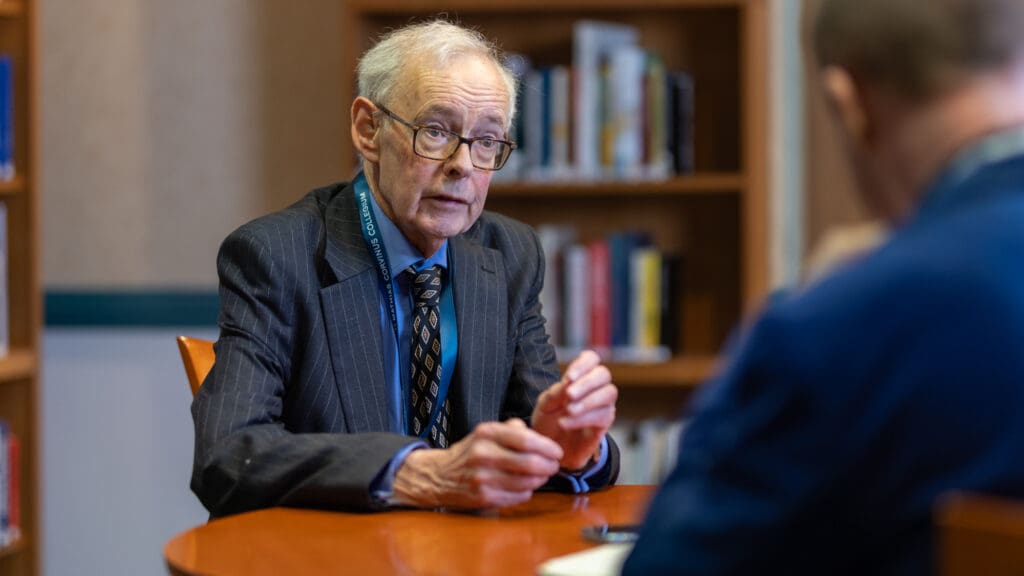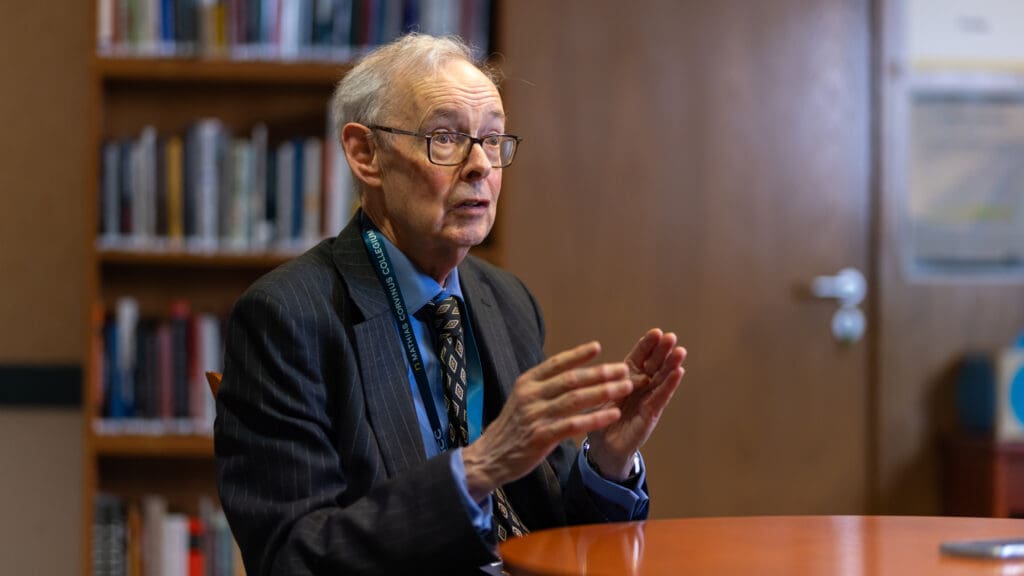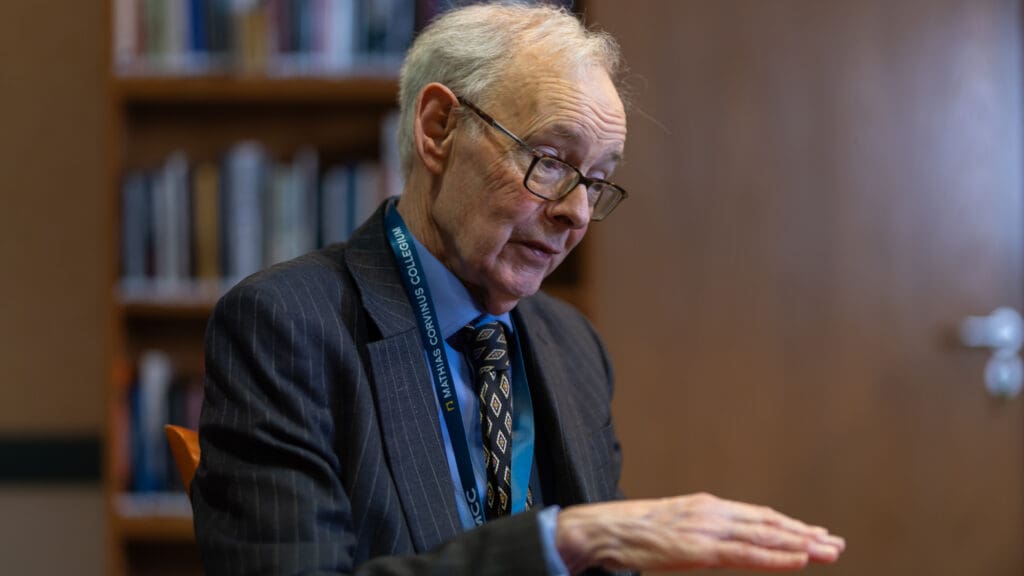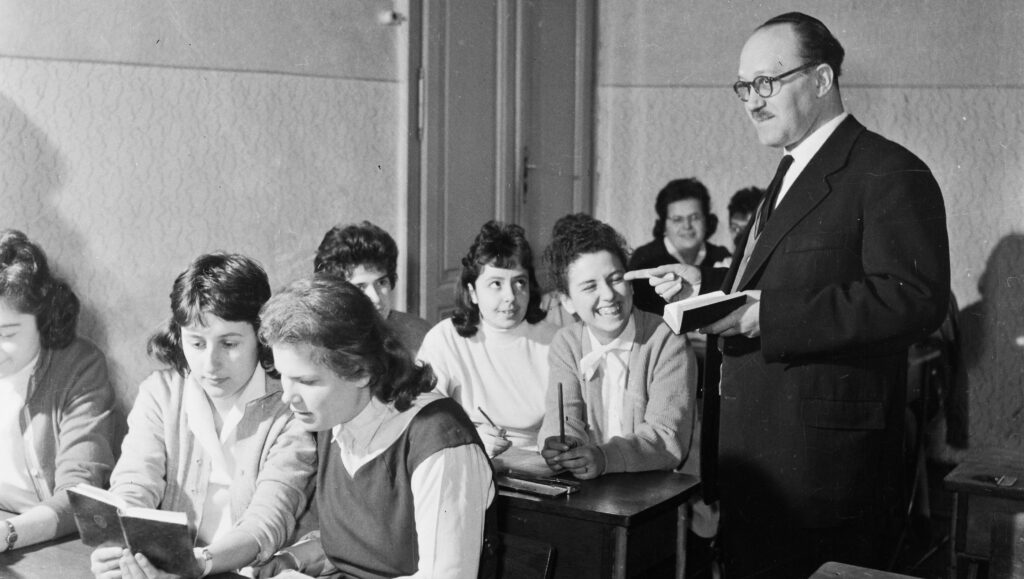Anthony O’Hear is a professor of philosophy at the University of Buckingham and author of many books and articles on philosophy. For 25 years he was Director of the Royal Institute of Philosophy, London, and editor of its journal Philosophy. Has advised several UK governments on education. During the MCC Summit on Education, Hungarian Conservative had a chance to talk to him about the role families should have in the education of their children as well as about parental choices and responsibilities.
***
What role should the family hold in education? How much should it influence education in your opinion?
I think within broad limits, the family or parents should have the right to choose the type of education they think is fit for their children, because they are the best judges of what the child needs. Not all families, I know. But in general, they are the best judge of what a child needs. And I think that if everything is taken out of their hands, and put in the hands of the state, this first of all may well lead to dissatisfaction from parents, whereas if parents have more choice, they would be able to choose schools that taught the kind of ideas and philosophies they’d like. Even religion that they wanted their children to be brought up in.
What responsibilities do you think a family has in supporting the education of their children?
I think that I don’t like the idea of parents interfering in schools, once they’ve chosen them. So I think they should choose the school along the lines that they see fit, you know, if they’re Protestants, let’s say then they can choose a Protestant school; Catholics a Catholic one; or if they’re secular than a school that isn’t religious at all. But I think that then they should leave the actual education to the teachers. And if they don’t like it, you know, if it turns out isn’t working, then they should be able to move the child to another school.

Families and schools working together after the family picks the school should work together. But I don’t like the idea of parents going into classes, trying to get at teachers and get them to change what they’re doing and that sort of thing. I think there’s a separation of responsibility.
How much do you think, family, or parents influence the success or achievement of a child who’s already in school?
I think quite a lot, but by supporting the school, making sure the child does homework, studies, behaves properly. I mean, these things also should obviously be done by the school, but I think, yes, parents should, in general, support the school. So if a child has been particularly difficult in school, then the parents should also try to help to solve whatever the problem is. If the child is very badly behaved in school, parents should be made aware of this and then try to correct it. Nothing’s guaranteed, but try to support the school.
How much do you think parents financially supporting the school matters in terms of getting better education or just proper tools for the education?
I would like all education to be private. In which case, there’ll be a very strong financial connection between the parents and the school. It’s difficult to say if a school is state funded, which obviously most schools in Western society are. I don’t have very strong views about whether parents should contribute to other aspects of the school or not. I mean, I think it might be reasonable if they did, but without too much pressure.
Are there any common misconceptions you can think of in families influencing education?
Of course, as I said, in general, parents should be allowed to choose schools. But there are, needless to say, difficult cases where people might think, and state authorities might particularly think, that the school or the community in question is not educating the children properly.

And I can think of examples like the Amish and the Mormons, I think, in the United States. Other groups you could think of that say the state is not providing a satisfactory education. And my feeling is, or my position is, there’s no absolute right or wrong here, that the state should, on the whole, within limits, give more permission for, let’s say, an Amish school to exist rather than to try to stop it. Now, of course, there might be cases where a school goes against the law of the country, let’s say by, in some way, discriminating against girls, which is a criticism that’s made of some religious schools.
So I think if there’s any school that’s allowed, it must operate within the law. So if the parents wanted to send their child to a school that significantly disadvantaged girls, they would probably fall foul of, you know, some Equality Act or something like that. And then I think that the school should either follow the law of the country or it would have to go out of existence. So
I’m not saying that parental choice is absolute.
And I do think that there are difficult cases where some people might think and particularly some officials would tend to think this sort of thing. Might think the school is not providing what they think is an adequate education. As I say, I think on the whole, within the limits I mentioned, one should be tolerant of difference here. Particularly if the difference relates to contested matters.
How much do you think schools should encourage the parents or families to be actively involved in the education?
I think that will be part of the support that is given to the schools. But yeah, of course, there are notorious cases where they don’t just help with coursework and assessed work, I’ve seen it myself, where the work is actually done by the parent, not by the child. I wouldn’t encourage that. But still, I think that keeping an eye on the homework that’s being done is probably a good thing. And well, I’ve done this with my children, if they got, you know, some maths homework, and they can’t do a task, and I might know how to do it, then I would try to explain, I would help.
I’ve been told during the interviews with other experts that many schools are trying to move away from exams and force writing exercises. What is your opinion on this, are exams important?
I think these written assignments on the whole are pretty unreliable, and often they’re pretty useless. I mean, people write huge essays to submit that are very long, very boring. So it is good to neither man nor beast as you might say. And I think to put pupils and students in university under the pressure of having to write a three hour exam or something like that is extremely healthy all round. And also, then it would not matter that we have all these computers and things that can do things automatically. So now, the actual pupil or the student is put to the test and has to perform. And it’s stressful, but then many things in life are stressful.
I think one good unintended consequence of AI is that educational bureaucracies and examining bodies are going to have to rethink what they do.
Do you think AI will diminish the skills of students’ writing? Even reading skills?
There might be all sorts of things that diminish pupil’s skills and ability. But I don’t see why this should necessarily be so. If you know your subject, then you can get a lot of help from AI, from Wikipedia, and all these things. The danger with that is that people will use these things without being able to assess them, or really know enough about it to know whether what they’re picking up is reliable or not.

But I think if you have background knowledge, I wouldn’t complain about AI or Wikipedia. I’d say they’re useful. To be honest, I use Wikipedia quite a lot. I don’t always accept everything it says, but it always gives me pointers and suggestions. And also it can be useful. And even if you don’t know the topic, if you’ve got some kind of general feel for these things.
Do you think families should regulate how much a child can access AI, or technology in general?
Definitely. Preferably ban it. Not necessarily AI, but video games for instance. Of course, I know. That’s probably impossible, but then then make it limited and supervise it properly. I would probably not allow them to have smartphones, at least until a certain age.
Read more on the same subject:








